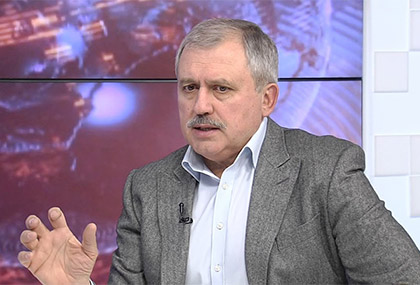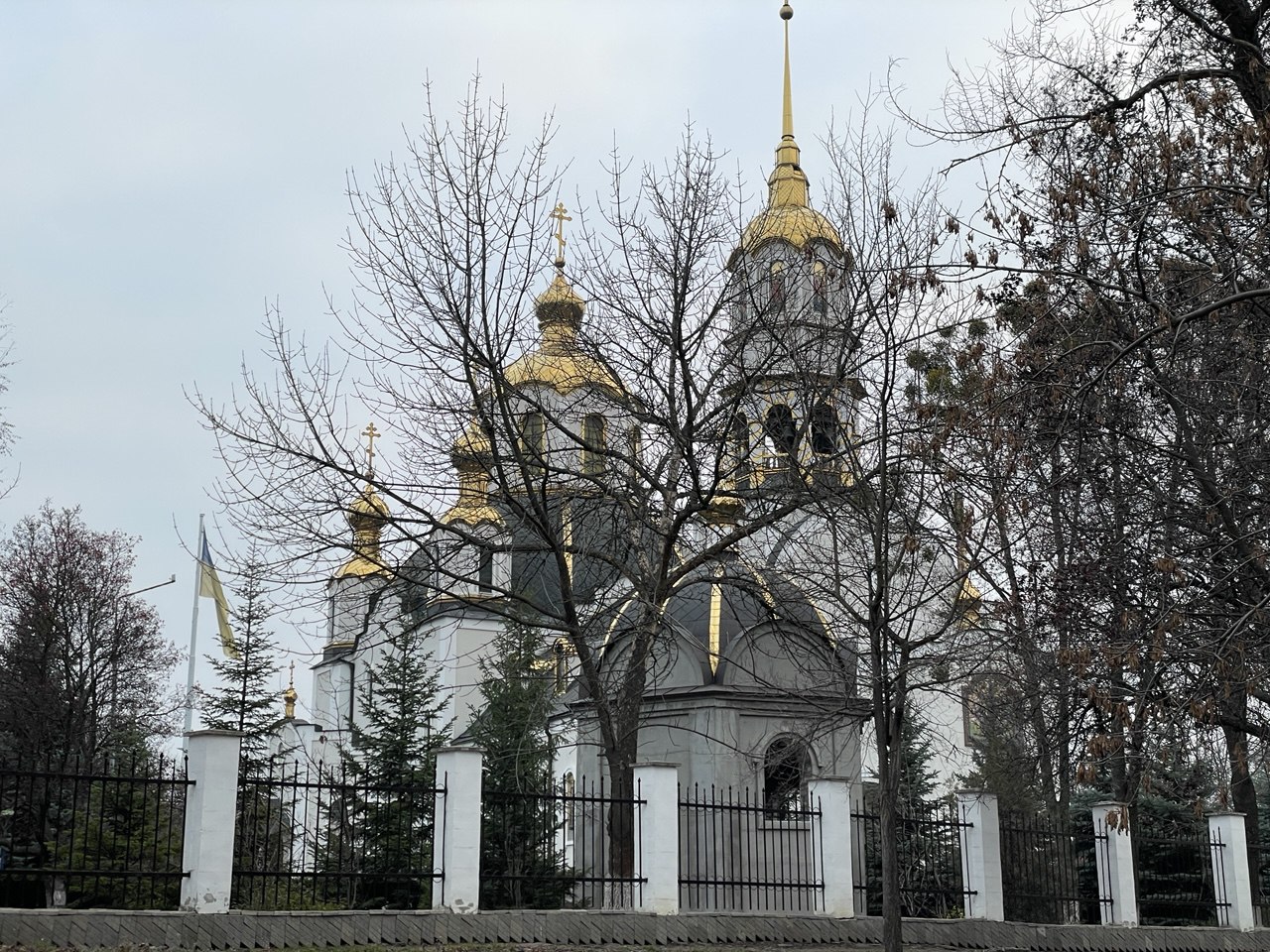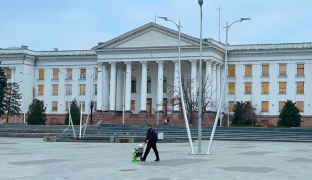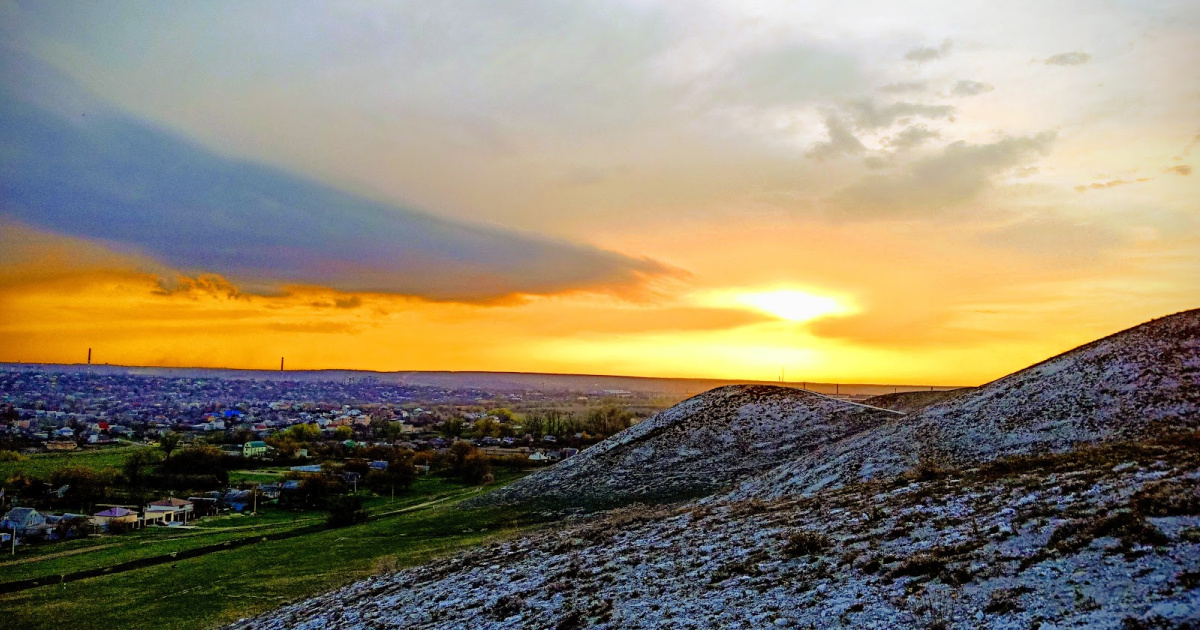Recently, the topic of reintegration of the occupied territories has reached a new level and is constantly being discussed in Ukrainian society and politics. Heated discussions revolve around the question of what will happen to the residents of Donbass and Crimea after the occupation administrations leave.
According to the Minsk agreements, Ukraine is obliged to provide amnesty by enacting a law prohibiting the prosecution and punishment of persons in connection with the events that took place in certain areas of the Donetsk and the Luhansk oblasts. Despite the fact that in the Law "On the peculiarities of local self-government in certain districts of the Donetsk and the Luhansk oblasts", adopted in August 2015, the state guaranteed "prevention of criminal prosecution, bringing to criminal, administrative responsibility and punishment of participants of events on the territory of Donetsk and Luhansk oblasts in accordance with the law", such a law still doesn’t exist. Therefore, everyone sees such a guarantee of "non-investigation" in different ways.
For example, Minister of Internal Affairs of Ukraine Arsen Avakov recently proposed to amnesty absolutely everyone, "except those whose hands are coated with blood, who killed our soldiers, participated in repressions against civilians".
The head of the Ministry of Internal Affairs also insists on mandatory adoption of the law "on collaborators", which will affect ordinary residents of Donbass, who got into the occupation. By the way, this topic is not new, and several bills on "collaborationism" are registered in the Verkhovna Rada, which, among other things, imply deprivation of liberty only for obtaining documents of the occupation authorities.
Sila Prava All-Ukrainian Movement has developed a draft law "On Forgiveness", which is a kind of alternative to potential laws "on amnesty" and "on collaborators".
OstroV interviewed the chairman of Sila Prava All-Ukrainian Movement, People's Deputy of Ukraine of the V-VII convocations Andriy Senchenko, who told how dangerous "Avakov’s plan" is and how he sees the process of reintegration of the occupied territories.

- How do you assess the process of de-occupation and preparations for the reintegration of the Donbass and the Crimea by the Ukrainian authorities?
- To our great regret, there is a very serious vacuum in the country, both in the strategy of protecting Ukraine and the return of the occupied territories, and in the strategy for restoring people's peaceful life. If we try to imagine today that Russia has decided to leave the Donbass and the Crimea, it turns out that the Ukrainian authorities are not ready to return to these territories and fully fulfill their functions with respect to our citizens.
- Why do you think that?
- Let's imagine the situation that we will return the Crimea, where nowadays Russian documents are issued, Russian laws, traffic rules, taxes and so on are applied. Did someone prepare a scenario of reverse transformations? No. If the Russian Federation leaves the Crimea, where 2 million people live, imagine the extent of the mess and irritation in connection with the absolute unpreparedness of the authorities to provide a normal peaceful life for those people. Moreover, the Donbass faces spilled blood, lost housing, destroyed infrastructure, crime, a huge number of weapons and so on. In addition, there is a rule - the longer an international armed conflict lasts, the more it acquires the signs of an internal armed conflict. For the fifth year the country is not simply divided by the front line - our citizens live in totally different realities.
People living in the occupied territories do not understand how they will live after Russia leaves. And we do not understand this because the authorities did not formulate rules, did not discuss them with people and did not approve them in the form of a law. The authorities' inactivity got to a critical state and at some point, the Sila Prava team decided to create the De-occupation and Reintegration Center.
Of course, there is no alternative to strengthening our army. A strong army is not only the main factor in ensuring national security, but it is also a very important argument for de-occupation of our territories. But the use of force is permissible only when all non-military methods of pressure on the aggressor have been exhausted. That's why we, as a public movement, focused on the development of additional (non-military) de-occupation measures and the reintegration program, which, in fact, is an alternative to the Minsk formula built on a false message about the internal nature of the conflict. It is obvious that the Minsk formula is imposed by the Kremlin and is rejected on an intuitive level by the Ukrainian society.
- What elements of the Minsk agreements require an alternative?
- All of them. Firstly, this so-called special status of the Donbass. After all, it is about creating a legal enclave that does not fit into the Ukrainian legislative field at all, but it can dictate many conditions to Ukraine. This is exclusively Putin's plan, signed by Poroshenko.
The second element of the Minsk formula is amnesty. It cannot be used because any amnesty is a mass act that does not imply repentance in the deed. Some of those who fall under the amnesty, but do not repent, will continue to do the same. Such an amnesty is dangerous for the future of Ukraine.
Take, for example, an average Ukrainian village with 1-2 families, whose members died while defending our country, 2-3 soldiers returned with injuries. And let us imagine that an amnesty is held for all those who committed crimes in the occupied territories in front of these people. This will lead to the fact that in the eyes of the residents of such village, everyone who just lives in the occupied territories is the same as those who committed crimes in the interests of the aggressor. Such indiscriminate amnesty will lead to distrust and hatred towards all residents of the occupied territories.
And the third component of the Minsk formula is immediate elections. In fact, we are talking about elections under the control of Russian troops. But even if we imagine the situation with holding elections without occupants, we should understand that there is no full-fledged Ukrainian government, citizens' rights are not restored, criminals are not punished, there are no Ukrainian media, Ukrainian parties and public organizations. People are in a state of long-term stress and poverty. They are defenseless against any pressure and manipulation. How can you hold any elections? They will not bring anything except conflicts. For example, in Germany, the first elections were held 4.5 years after the Second World War.
- And what do you suggest?
- There should be a transition period both in the Crimea and in the Donbass, during which it is necessary to solve all those problems. And there should be a special status only for a transitional period. It should be based on ensuring that the central government took full responsibility for restoring the peaceful life for the transitional period.
- Recently, the Minister of Internal Affairs of Ukraine Arsen Avakov presented his plan for the de-occupation and reintegration of the Donbass. How do you assess it?
- It is very confusing. For example, he proposed to take the Donbass back step by step. By the way, he forgot about the Crimea, and not by accident, because the proposed scenario will not allow the return of the peninsula. Russia wants to give the Donbass back, but on its own terms, which, in fact, will ruin Ukraine. Imagine that they are giving us Horlivka back, we are restoring Ukrainian sovereignty there, and then Russia quite logically appeals to the world community with a demand to lift sanctions, because the process went according to the "Ukrainian" scenario. But this process will end only when the Kremlin wants it. When the canceled sanctions will be almost impossible to restore.
In addition, Avakov said that we should pardon all those whose hands are not coated with blood, but at the same time he stated that we must introduce some responsibility for collaboration without specifying its nature.
- Several bills on collaborators have been registered in the Verkhovna Rada. Maybe the minister had them in mind?
- None of them will work. Our Constitution enshrines the principle, which is one of the fundamental principles of international law - a law that introduces a new, more severe punishment or restriction, cannot have retroactive effect. This means that if the Rada adopts the law on collaboration, all the collaborators who had committed crimes before that, will laugh at us. This law will not concern them.
- Avakov also proposes to deprive the citizens of Ukraine, who lived in the occupied territories, the right to elect a president and parliament for some time. What do you think about this idea?
- This is a Stalinist approach. It is impossible to restrict the rights of people on grounds of residence in the occupied territory. Take, for example, the situation with the Ukrainian political prisoner Volodymyr Balukh, who is now in the Crimean detention center. From the point of view of Avakov, he should be deprived of the right to participate in elections during de-occupation.
As for the election of the President and the Verkhovna Rada, the rights of Ukrainian citizens must be restored in a short time, immediately after the punishment of the guilty ones, and after settling the issues of citizenship for two million Crimean residents. Local elections, on the contrary, should be carried out only after the end of the transition period. And this is not discrimination, but quite obvious necessity. Millions of IDPs must return to their homeland, it is necessary to revive the economy in an elementary way, because the elected authorities should have a source to solve the problems that people will face.
- Let's move on to the bill "On Forgiveness". What is its purpose?
- The main task of the law is to break down the wall of fear, misunderstanding and hatred that Putin builds between the free and occupied territories of Ukraine. The Kremlin is constantly trying to persuade the people of the Crimea and Donbass in that Ukraine hates them and considers them traitors. They are trying to mobilize and rally those people living in the occupied territories. But it is important for us to explain them that this is a lie. Therefore, we tried to make a precise list of articles of the Criminal Code that can be used to qualify actions of citizens of Ukraine living in the occupied territories. It is about actions on behalf of the aggressor state and against their own country. This approach allows us to explain to millions of our fellow citizens who have committed no crimes that they are not our enemies, they are victims of the occupation and there are no complaints against them.
We asked a large group of experts (former and current investigators, prosecutors, judges) to draw up the most detailed list of articles of the Criminal Code that could theoretically be applicable to the evaluation of such actions. When we received this list, there were 46 articles. After that, we modeled how many people in the Crimea and Donbass falls into the risk zone of being prosecuted. We reached a horrifying figure of 1 million people. Therefore, having carefully analyzed the entire list, we left only 25 articles which allow you to qualify for real crimes. The draft law stipulates that only these articles can be used to evaluate the actions of our citizens in the Crimea and Donbass, committed against their country during the occupation. And this list is not subject to expansion. Neither prosecutor, nor investigator or judge will be able to apply other articles of the Criminal Code to evaluate such actions.
When we defined this list, about half a million people turned out to be in the risk zone, up to 100 thousand in the Crimea and up to 400 thousand in the Donbass, that is, half as much. All other people, in addition to these 500 thousand, will be able to catch a break, because they will clearly understand that not political statements, but provisions of the law confirm that there can be no complaints against them. And this law stipulates that it is not a crime to obtain a Russian passport in the Crimea and ersatz passports, issued by the occupants in Donbass, as well as to pay taxes in the occupied territories.
- And what will happen to those 500 thousand citizens?
- It is known that article 110 (violation of foreign territorial supremacy and inviolability of Ukraine), article 111 (high treason) and article 114 (resistance to lawful activities of the Armed Forces of Ukraine and other military formations) are the most applicable today for crimes committed in the occupied territories. For example, now the former deputy minister of sports of the occupation government of Crimea and deputy minister of health of Crimea serve time in Kyiv pre-trial detention center. Their actions are determined according to part one of article 111 of the Criminal Code (high treason). For such a crime, from 12 to 15 years of imprisonment with confiscation of property are provided. They are criminals and collaborators in my eyes, but they certainly did not commit crimes for which they must be sentenced to 12 years in prison and kept there at our expense for the whole time. It is obvious that our system of punishment according to the current Criminal Code is not adapted to the conditions of this war and occupation.
Another example. Recently, there was illegal election of Putin in the Crimea. Our prosecutor's office rightfully announced that those more than 10 thousand Ukrainian citizens who were members of illegal election commissions committed a criminal offense. Yes, they did. According to the Prosecutor's Office, they committed a grave crime, that is, they are charged with the article "High Treason" (from 12 to 15 years). I talked to the prosecutors and asked them whether they are really ready to imprison 10 thousand people for 12 years just for one this episode if tomorrow we return the Crimea. They themselves do not believe in it. And those 10 thousand people who committed the crime do not believe in such a punishment. This means that this approach has no sense.
- What do you suggest?
- We suggested to introduce more flexible system of punishment on the three above-mentioned grave articles. At the same time, we found a way out of the legal problem connected with the need to punish collaborators. The draft propose to supplement article 111 (high treason) with two additional parts. Now it provides only from 12 to 15 years of imprisonment with confiscation, and we suggest it to be left. It is for servicemen who violated the oath, employees of the SBU, those who organized the occupation in the Crimea and Donbass and those who are in charge of the occupation authorities now.
Then we propose to introduce part 2 (from 3 to 5 years of imprisonment) for crimes of medium gravity. This is the same high treason, but in the form of collaborationism, which did not lead to direct grave consequences. And part 3 (up to 2 years of imprisonment) - this is high treason in the form of collaborationism of a small gravity with even fewer consequences. Sounds annoying of course, but if you look deeper it allows you to escape from absurdity in terms of punishment.
- What in that case will the same deputy minister of the occupation authority of Crimea be threatened with?
- In this case, part 2 can be applied to him. Let us imagine the whole ministry of sports in the occupation government of Crimea with the minister who fairly faces from 12 to 15 years with confiscation, since this is a political capacity. It is already from 2 to 5 years for the deputy minister and up to 2 years for the head of the department. And here comes the question: where to stop and tell people who are below that they are not criminals. This can be determined only by the Ukrainian society. This is a fine line, since there is the Ministry of Health and there is, for example, the Ministry of Propaganda, where, I believe, all employees should take responsibility. We should distinguish social departments from propaganda and punitive ones.
- What about the election members?
- After the adoption of this law, the picture will look like this. Members of the election commissions of Crimea and Sevastopol who are the main organizers of this illegal performance in our territory - from 12 to 15 years of imprisonment with confiscation, chairmen, deputies and secretaries of local (precinct, district) election commissions - up to 5 years, and rank-and-file members - up to 2 years in prison.
Those used by Putin as "voters" are morally responsible.
- Then what about forgiveness?
- Those who committed crimes of medium (up to 5 years of imprisonment) and small (up to 2 years of imprisonment) gravity are eligible for forgiveness on the condition that they repented.
And those who committed grave crimes for which up to 10 or more years of imprisonment are provided are not to be forgiven. These are all those who killed, took part in hostilities against our country, all the leaders of security agencies, servicemen who violated the oath and so on. They must carry punishment according to the full strictness of the law.
- What does this forgiveness mean?
- If a person repents he/she can receive an alternative punishment in the form of time restriction of rights instead of punishment in the form of imprisonment. If he/she committed a crime of medium gravity - 10 years of restriction of rights instead of 5 years in prison, of small gravity - 5 years of restriction of rights instead of 2 years in prison.
- What does this restriction of rights include?
- Prohibition on state and military service, service in law enforcement agencies, work in judicial service, bodies of local self-government, as part of election commissions. This person also will not be able to head state-run institutions, enterprises or organizations. For the same period, he/she is forbidden to teach and participate in elections (both local and national). But do not forget that we are not talking about all residents of the occupied territories, but only about those who committed a crime of medium and small gravity.
- Are there any preliminary calculations, how many people in the Donbass and Crimea fall under the law "On forgiveness"?
- According to our forecasts, about 15 thousand people in the Crimea and 80 thousand in the Donbass are not subject to forgiveness. But more than 400 thousand people will be able to receive forgiveness: they will not be in prison, they will be integrated into a peaceful life, but they will have a criminal record and will be limited in their rights for the entire term of alternative punishment.
In this case, the same deputy minister of sports will no longer be in prison, but will fall under the law "On forgiveness" and will be released, but with a certain restriction of his rights.
That is, we separated millions of people and told them that there could be no complaints against them. Of the remaining approximately 500 thousand (in total for the Crimea and Donbass), 95 thousand will be criminally responsible and will serve time and the rest will be integrated into the peaceful life despite the fact that under the current Criminal Code of Ukraine, they had to go to jail.
- What will the procedure of forgiveness look like?
- Everyone who committed a crime will have the right to individually and voluntarily file a lawsuit in Ukrainian court with two documents within six months after deoccupation: a statement of the crime committed (acknowledgement of guilt) and a petition for forgiveness addressed to the Ukrainian people and state.
The text of the petition for forgiveness:
I, a citizen of Ukraine (full name), in the period of armed aggression of the Russian Federation against our country, committed criminal offense(s) in the interests of the aggressor state, to the detriment of Ukraine's interests, described in the statement of the crime committed, provided by me together with this petition for forgiveness.
I acknowledge my guilt, repent sincerely and ask the Ukrainian people and state for forgiveness for the crime(s) I committed. I ask you to apply to me the procedure of forgiveness and alternative punishment provided for by the Law of Ukraine "On forgiveness".
It is vital that we found a mechanism by which the procedure of forgiveness does not imply a law enforcement investigation. The person submits the application directly to the court, which in a short procedure compares the facts stated in the application with the criteria for forgiveness. If they correspond, the court delivers a judgement in which the citizen is convicted of a crime and, on the basis of the law "On forgiveness", the court change his/her penalty of imprisonment for an alternative punishment in the form of time restriction of rights. This citizen will have a criminal record for the entire period of alternative punishment.
- And what will happen if a person confesses to some trifle and conceals graver crime?
- The court passes a judgment on forgiveness for exactly what the citizen confessed to. Everything else will be investigated according to the standard procedure. All that he/she concealed will remain on his/her conscience and first or last, the punishment for what he/she did will come.
In the law, we described in detail the categories of who and how will be held liable. And now it is being discussed publicly, so we continue to supplement and correct it.
- Do you think it is time to discuss and adopt such initiatives? After all, the territories are not yet released.
- This should be done as soon as possible. If now there are no rules that people understand, if we do not explain to them by what laws we are going to return to a peaceful life, we will never return these territories, - there will be stiff opposition. If we do this as envisaged in the Minsk agreements, the distrust, fear and hatred with a thin line between a large-scale internal conflict will remain.
Interviewed by Vladyslav Bulatchik, OstroV






 Collaborators? What awaits the residents of Donbass and Crimea after their return to Ukraine
Collaborators? What awaits the residents of Donbass and Crimea after their return to Ukraine